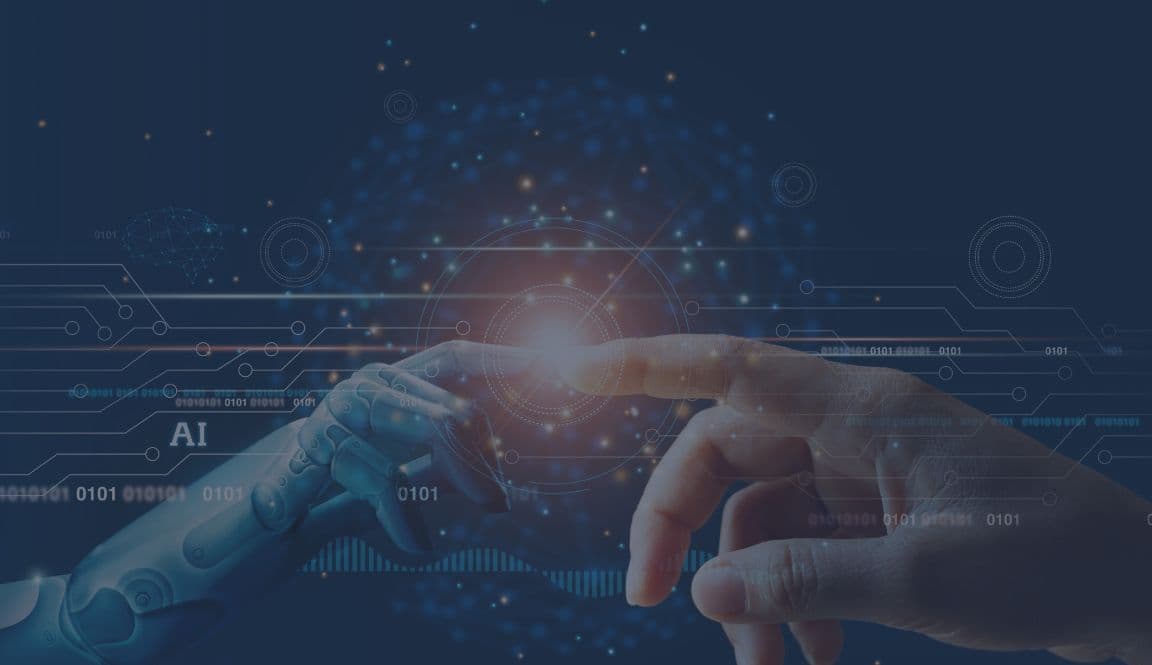
Artificial Intelligence and Its Applications:

Artificial Intelligence and Its Applications
"Artificial Intelligence," which creates a great impact in the global world, is a technology that enables computer applications to learn experiencedly through iterative processing and algorithmic training. Artificial intelligence stands out for its ability to mimic human intelligence. Artificial intelligence systems become much smarter in successful data processing processes, allowing testing of solutions and the development of expertise in the relevant tasks with each interaction. Through artificial intelligence and its applications, computers are enabled to think "like humans," resulting in excellent performance.
What are the Components of Artificial Intelligence?
Undoubtedly, the components of artificial intelligence have a significant influence on the current state of artificial intelligence. To comprehensively grasp artificial intelligence and delve into its depths, it is necessary to have knowledge about its components. Here are the fundamental components of artificial intelligence, which bring technology closer to reality:
1. Machine Learning: Machine learning, one of the applications of artificial intelligence, allows computers to learn directly from experiences and acquire the ability to improve without being explicitly programmed. Machine learning, which has algorithms such as pattern recognition and prediction, continuously evolves. In the process of development, it learns from new datasets. Examples of machine learning applications are commonly found in everyday life, such as the spam filtering algorithm in email applications.
2. Deep Learning: Deep learning is a subset of machine learning that enables machines to learn by processing data. Deep learning, which utilizes artificial neural networks, plays a crucial role in solving complex problems.
3. Artificial Neural Networks: Artificial neural networks, included in the topics of artificial intelligence, are designed with the purpose of analyzing information similar to the human brain and simulating its structure. Artificial neural networks, considered as the foundation of artificial intelligence technology, enable AI to have self-learning capabilities.
4. Natural Language Processing (NLP): Natural language processing, also known as NLP, provides machines with the ability to understand and generate human language while reading it. NLP, mostly used by voice assistants, transforms unstructured language data into a form that machines can comprehend, using intelligent algorithms.
5. Computer Vision: Computer vision, a field of computer science, aims to replicate the human visual system. Its fundamental goal is to enable machines to understand video and image content.
Types of Artificial Intelligence
Artificial intelligence and its applications become more comprehensive with the types of artificial intelligence. The types of artificial intelligence are classified into three different categories based on their abilities to mimic human intelligence. The types of artificial intelligence are grouped as follows:
- Narrow Artificial Intelligence: Narrow artificial intelligence, which is the most basic and limited type of AI, is highly capable of performing programmed tasks accurately. Examples of narrow AI include Google Assistant, Siri, and Alexa. It is known that narrow AI supports self-driving cars and Amazon product recommendations. Narrow AI excels in performing monotonous tasks such as object detection, facial recognition, and speech recognition. It identifies correlations and patterns in real-time while functioning under various limitations and constraints. It is the only type of AI that has been achieved worldwide.
- Artificial General Intelligence: Artificial general intelligence, which is among the types of AI, is powerful and deep. It possesses the ability to perform anything that a human can do, without being restricted to any particular domain. Artificial general intelligence can learn, improve, and accomplish various tasks, showcasing multifunctional capabilities. It possesses all cognitive abilities that humans have and recognizes emotions and thought processes.
- Artificial Superintelligence: Artificial superintelligence, referred to as ASI, is a hypothetical form of AI. With artificial superintelligence, machines surpass human intelligence and cognitive abilities. If unlocked, artificial superintelligence would have the ability to think in ways that humans cannot comprehend and possess predictive capabilities beyond human understanding.
What are the Advantages of Artificial Intelligence?
Artificial intelligence and its applications bring along various advantages that reshape the human world and technology. The advantages provided by artificial intelligence can be summarized as follows:
● Automation: Automation, one of the most significant advantages brought by artificial intelligence technology, has significant effects on consumer products, transportation, communication, and the service industry. Automation increases production rates and directly enhances productivity. It also improves product quality and enables more efficient use of raw materials.
● Intelligent Decision Making: Through artificial intelligence and its applications, education can be extensively analyzed, uncertainties can be measured, and optimal decisions can be made for companies.
● Enhanced Customer Experience: Artificial intelligence provides supported solutions in various fields. It reduces the workload of personnel in customer service positions while increasing productivity. Companies can respond to customer suggestions and complaints more quickly and efficiently handle situations.
● Research and Data Analysis: Artificial intelligence enables the efficient analysis of data and the creation of models and algorithms for possible outcomes in different scenarios.
● Increased Business Efficiency: Artificial intelligence allows companies to maintain consistent productivity and performance throughout the day, resulting in increased business efficiency.
What are the Applications of Artificial Intelligence?
The question of what are the applications of artificial intelligence is among the most frequently asked questions. Many people, without realizing it, interact with artificial intelligence systems in various aspects of daily life. The answer to the question of where artificial intelligence is used can be explained as follows:
- Chatbots: Chatbots simulate user conversations with the help of NLP (Natural Language Processing).
- Voice Assistants: Voice assistants like Google Assistant, Alexa, and Siri work offline and use NLP to interpret and analyze speech accurately.
- Autonomous Vehicles: Artificial intelligence enables autonomous vehicles to overcome complex situations and avoid obstacles.
- Netflix and Recommendation Systems: Netflix's recommendation system is supported by artificial intelligence algorithms. It suggests movies and shows that have the highest probability of interest for you.
- Cybersecurity: Artificial intelligence helps prevent threats to companies. AI systems can detect security vulnerabilities and recommend measures to address them.
What could be the future applications of artificial intelligence? In this regard, many scientists claim that artificial intelligence can bring two different possibilities, either a utopian or a dystopian future. However, amidst these claims, it remains uncertain whether the future will always support or be supported by artificial intelligence.



